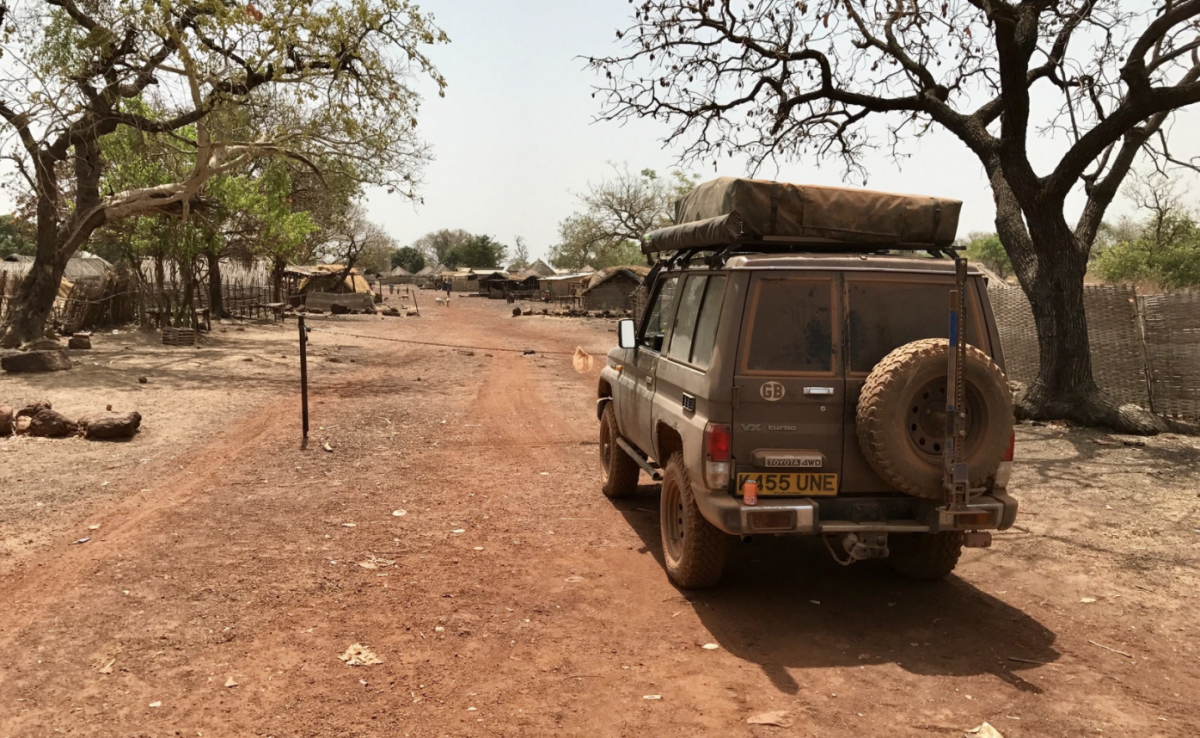It was early evening by the time we had been released from the fiasco of the border. We made good time towards Zebrabar as the fading sun painted orange peel layers across the sky ahead of us. Even this close to the border the differences from Mauritania were immediately evident. Well-sized horses in place of tired, emaciated donkeys, and a roadside hustle and bustle made Senegal feel young, busy and enterprising rather than sunburned and desolate.
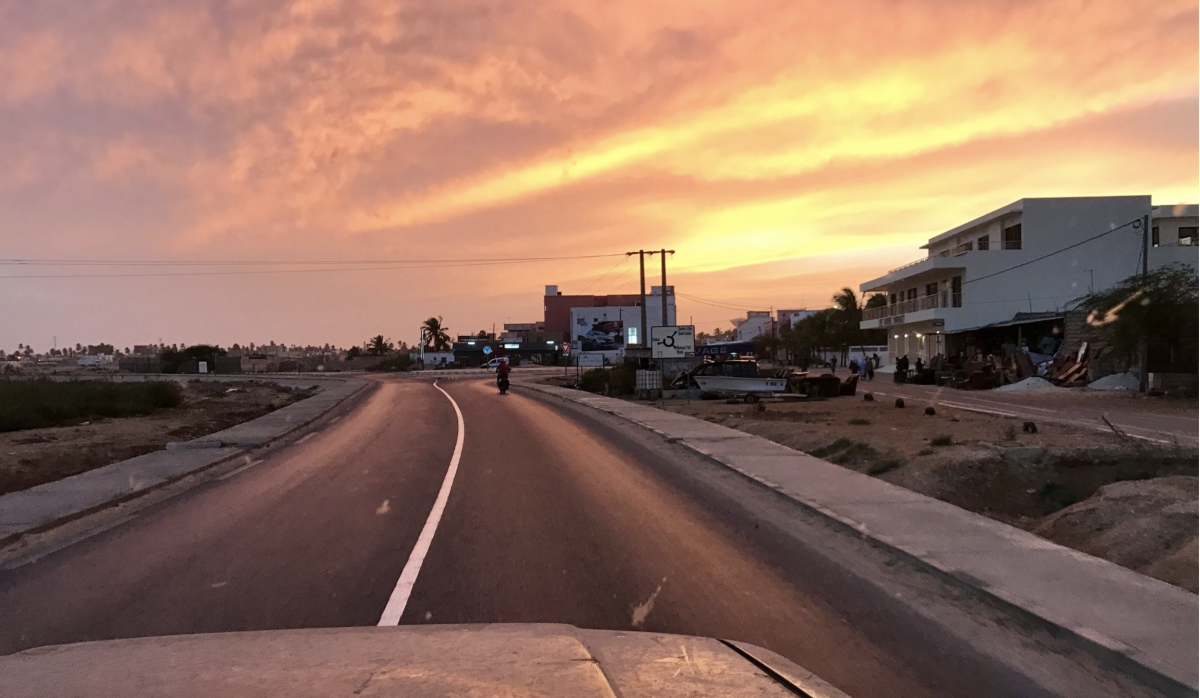
Owned by Martin and Ursula, Zebrabar has been open for nearly twenty years and is billed as a must-stop for anyone travelling down the west coast. With the waves in sight and sand underfoot, it felt like a continuation of the beach, albeit well shaded by groves of Acacias and Palm trees. At the bar, sat atop wobbly bar stools fashioned from old suspension coils, we could appreciate all the people it takes to run such a camp. After dry days in Western Sahara and Mauritania we chatted with Martin and his daughter and enjoyed a cold beer and a meal before heading to bed.
The following day we stayed-put, our first day not driving in two weeks. Using our time for personal admin, route planning and reading, interspersed with dips in the sea to cool off and chats with the other overlanders. There were a range of vehicles on show including a very smart 79 Series with a camper top, a pair of laden GS1200s and a couple of Unimog-esque trucks, one of which was having some chassis damage repaired at the camp workshop.
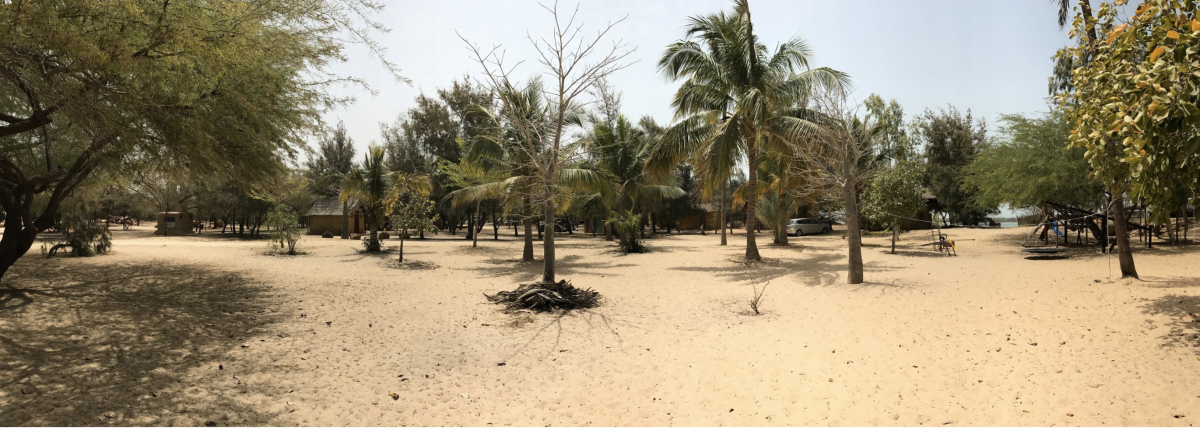
Our rest day guidebook interrogation had thrown up an expected spot, the Lompoul desert. A short drive down the coast from St Louis and within sight of the ocean, it was described as a strange, out-of-place 20km2 patch of rolling dunes more akin to Mauritania’s Saharan offering. But first we had to venture into St Louis for diesel and cash, the Zebrabar bill having been dearer than expected, their monopoly evident in their prices.
Finding a bank proved unexpectedly tricky, one takes for granted the ability to read the streets of their home country. A short drive through a city and you have a good idea of the layout and where to find what you need. In chaotic and jumbled African cities everything is foreign and disorientating. Rows of corrugated shacks overflowing onto the road, their owners unloading merchandise from horse-drawn carriages, while beat-up taxis honk and jostle for space, dented panels, wobbling wheels and missing windscreens a testament to their years of faithful service. The experience is immersive and fascinating but exhausting and overwhelming with each street appearing no different from the previous one.
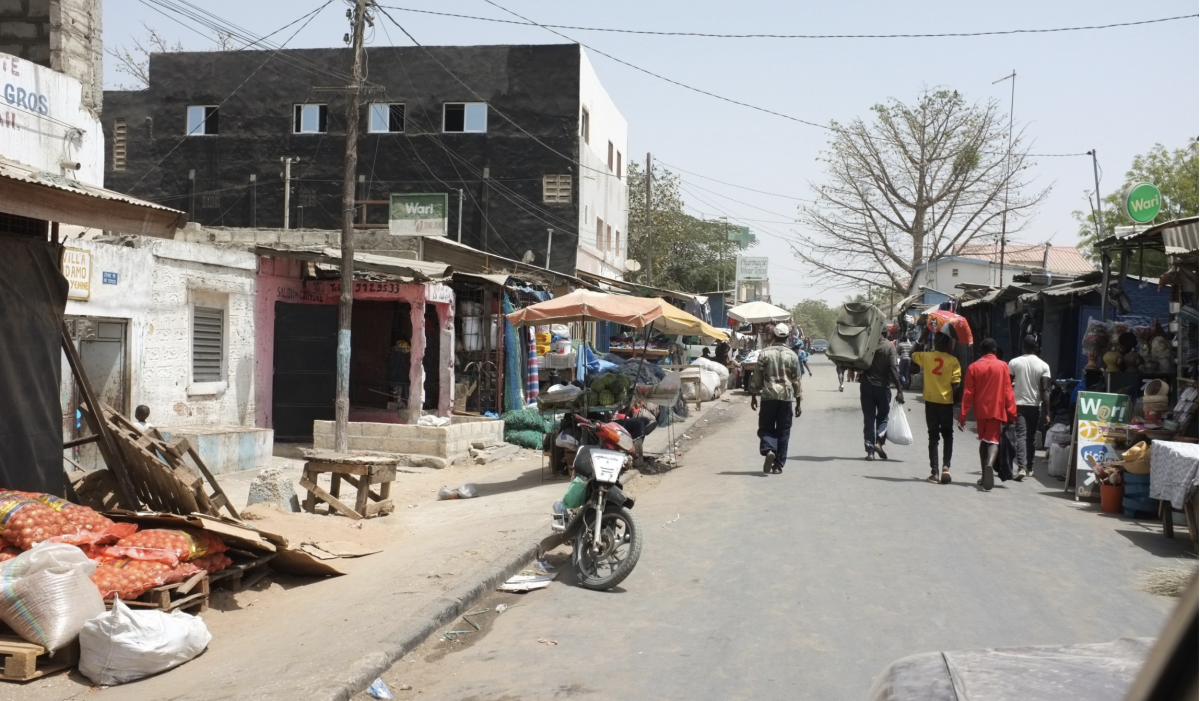
Continuing our search I recalled a taxi ride in Ethiopia a few years before. The driver had been particularly chatty and in an effort to divert the flow of questions I asked him whether there were any inspections his vehicle had to pass. He assured me that every year all the taxis passed a test ensuring they were road worthy. Considering his taxi smelt strongly of fuel and made a range of unhealthy groans I thought this to be rather unlikely. He went on to explain that a group of drivers pooled their resources and vehicles were stripped down and the parts moved across a number of vehicles, so that each vehicle was able to pass the test. If your brakes didn’t work you just borrowed a friend’s who did.
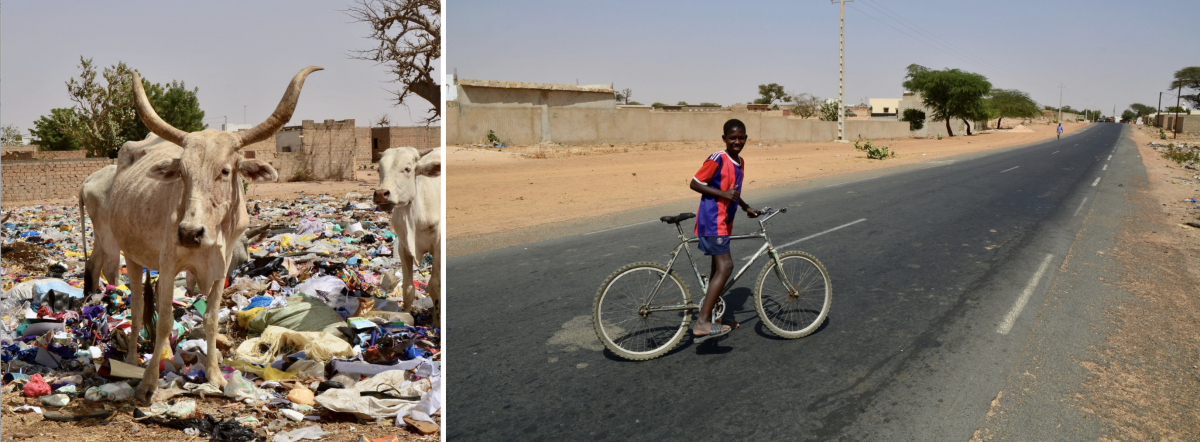
By mid afternoon we’d escaped St Louis, the dunes were in sight and we had turned off the tarmac. Before long a short, steep section of sand stopped us and we had to air down before continuing on to find a good spot for the night, avoiding the ecolodges and desert camps dotted around. Having missed the desert in Morocco and Mauritania it felt great to be parking up on a proper dune, golden sands all around and the distant thudding of the ocean occasionally heard over the fluttering breeze. We spent the rest of the afternoon drone flying, drinking tea and reading. I finished Kris Holloway’s evocative memoir of her time as a Peace Corps volunteer in Mali. “I savoured the feeling of being here, of knowing this place” she mused. I know what you mean, I thought.
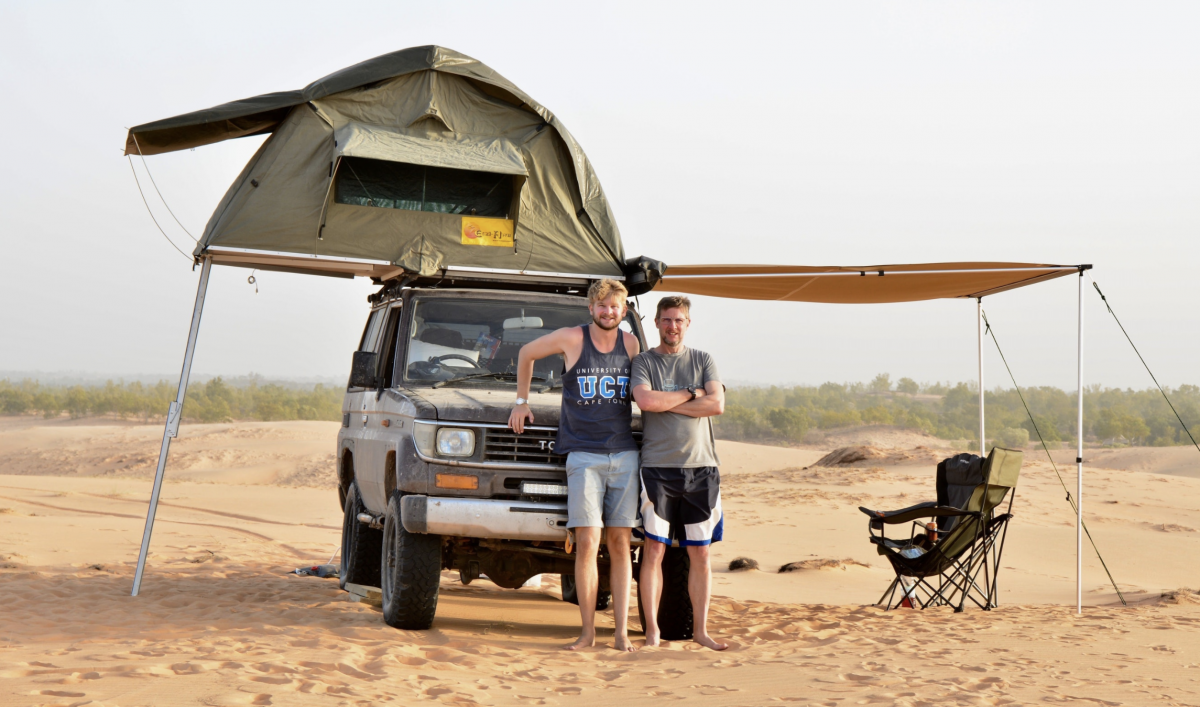
From Lompoul we continued down the coast to Dakar in order to visit the customs office and extend our temporary import permit. Approaching the outskirts the lanes of traffic slowed to a crawl and a mobile market formed around us. Lines of traders strolled between the cars hawking all manner of tat; sunglasses, phone chargers, children’s colouring books, and most bizarrely, a full length mirror and coat stand. The surrounding drivers seemed to offer a lot of custom and when the traffic started moving again money and goods were exchanged at a run.
Following a visit to the douanes office, an unexpectedly nice lunch at an Argentinian restaurant and a re-stock at a big supermarket we headed south and stopped for the night at a small campement in Poponguine on the Petite Côte. We’d been told about the area by a young German couple we met in Nouakchott who’d been travelling in their Defender for the past six years and had enjoyed a few weeks here on the beach.

After a slow start the next morning and a dip in the pool we dawdled further down the coast. For miles the beaches were littered with pirogues, fishing nets, the social fabric of the local culture on display; teenagers working out, running sprints and doing press ups, mothers and daughters washing clothes in the surf and groups of children kicking a flat football amongst the boats.
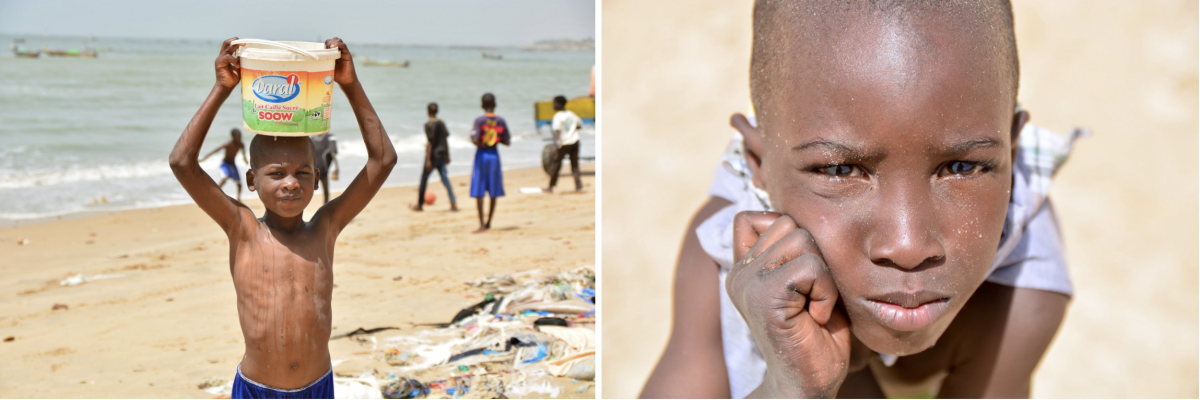
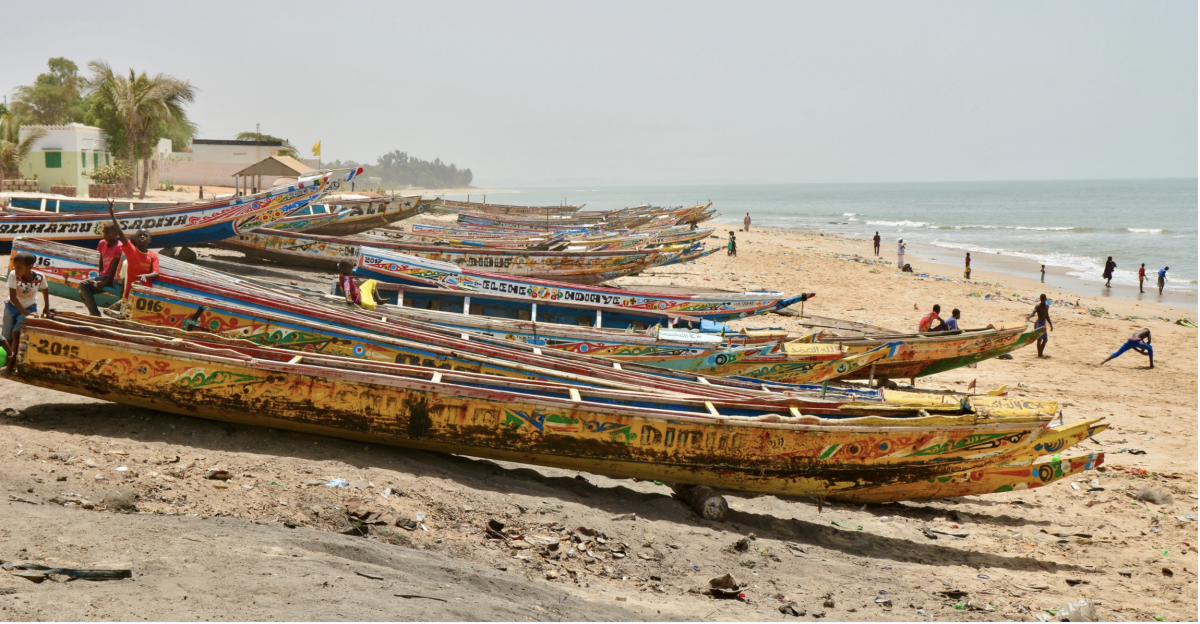
Around Mboar we stumbled across a place to stay. Chez Pap appeared to have once been a pleasant spot with rooms and a cosy restaurant, however, it felt as though it had laid unused for years, the paths swept each morning in the hope of a passing traveler. Despite its mildly derelict current state the owner attentive and helpful and it was quiet and secluded, the nearest buildings 50 metres either side and only the gentle wash of the ocean and the birds breaking the silence. The whole coastline around here had a feeling of a once glorious riviera allowed to fester and bleach in the sun. I imagined hoards of French holiday-makers during colonial days settling on the beaches for a week of winter sun.
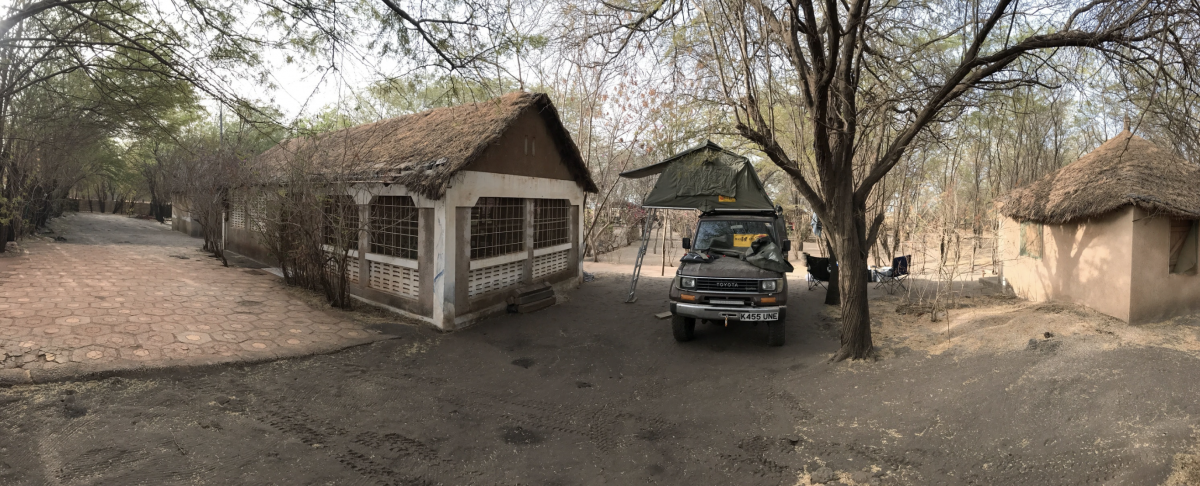
After setting up camp we strolled down the beach, empty but for all the litter strewn around and with a eery post-apocalyptic air. What were once grand and imposing buildings sat disintegrating, the majesty of a bygone life eroded by the waves and wind, leaving only shells. As I took photos, trying to incorporate it all, the ruins, the swell and the palm trees, dad walked on ahead round a small headland. Soon he had turned back and scurried over. “You’re not going to believe what’s round the corner”.
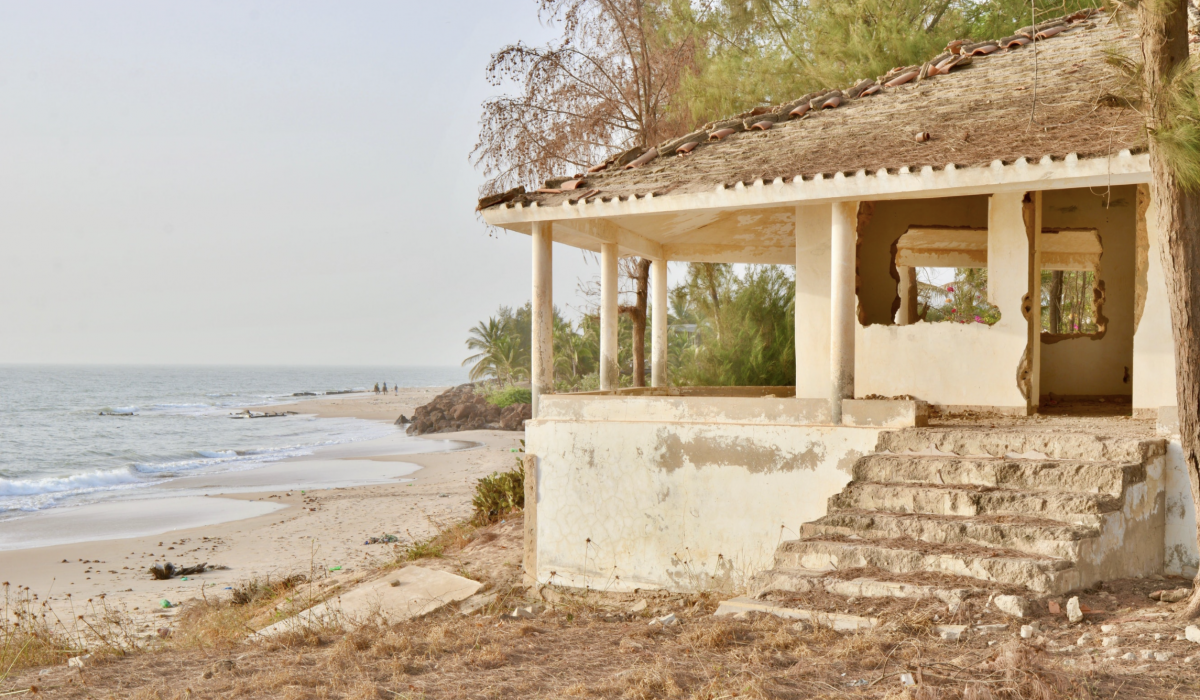
Fifty metres past the low headland, surrounded by palm trees and set behind a line of car-sized boulders lying at the high water line, sat an enormous, sprawling glass-fronted mansion. A row of sun loungers lay out front, only one of them taken, with paddocks and stables running alongside. It wouldn’t have looked out of place in Beverley Hills or the Caribbean. We continued on before taking a track around the back of the property. A dozen stables in the corner of the paddocks were being cleaned and the horses saddled ready for riding out. This side the property blended in, tired and paint peeling, at the far end of the long drive the house looked small and diminutive. It had the feeling of a secret hideaway, no one would ever expect to find it here, the only way to see the true scale from the beach.
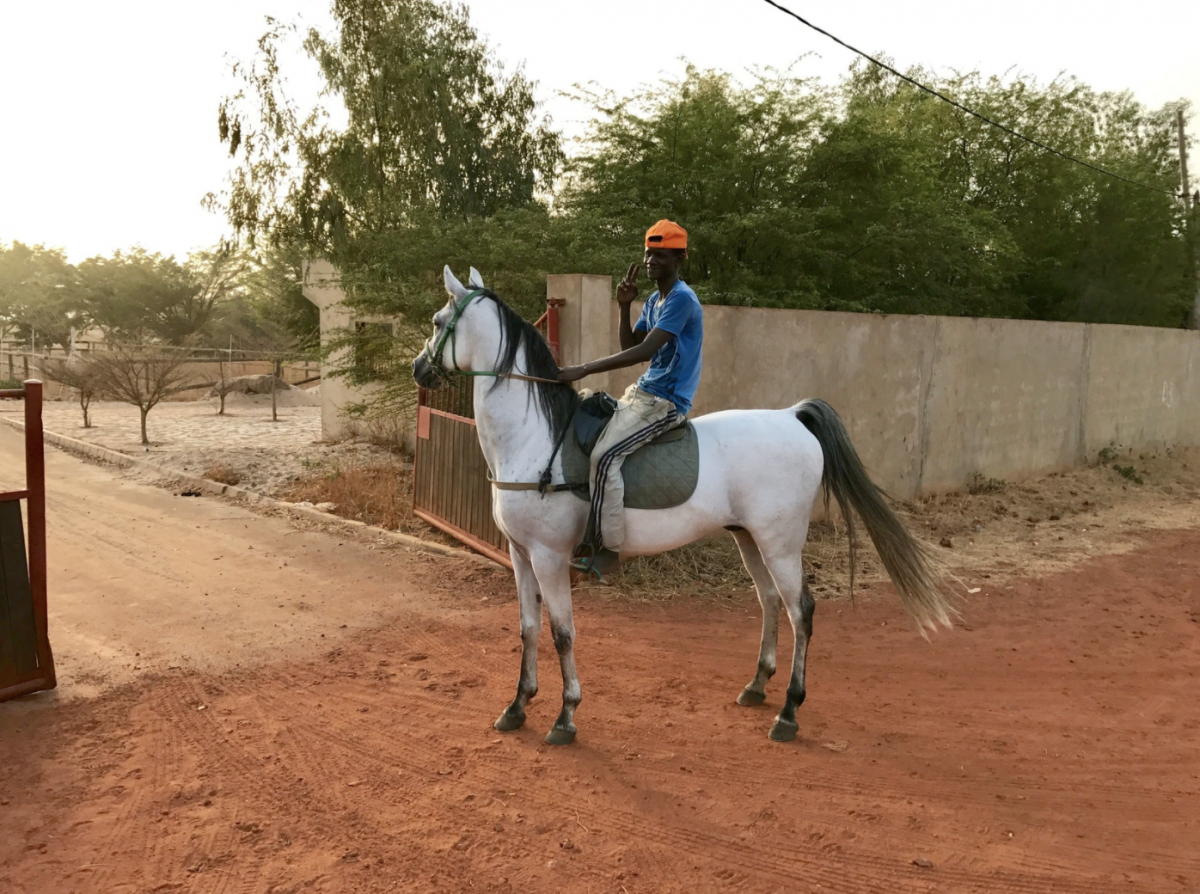
As we pondered the dichotomy one of the horses trotted up the drive. We greeted the rider, he had the look of someone who had lucked out in life, there’s certainly worse ways to spend an evening than riding out horses in flip-flops and a snapback. “Arab horse” he said, as if to explain his grin, before cantering off. Marvelling at our unexpected find we wandered back to Chez Pap, as the sun merged with the watery horizon. We bought a couple of beers from the bar and cooked dinner on one of the outside tables. Later a gentleman excused himself from the crowd growing inside the bar to come and introduce himself. He wore a starched white linen shirt with his initials etched on the pocket and salmon pink trousers and introduced himself as Pierre. He had a boat, he explained, that he often sailed to the U.K. as he were a member of the Round Table Club. He asked about our travels and was excited to hear we were father and son. “I have four girls,” he shrugged, before his wife called him back inside the bar.
Having spent some time on the coast and knowing our route into Guinea would be via the southeast of the country, in order to bypass The Gambia and Guinea-Bissau, we decided to move inland. A day on the potholed N1 took us to Wassadou Campement, set on a bend in the Nikolo-Koba river. As the sun faded I put the drone up, hoping to snap a photogenic river picture. Unfortunately, as it climbed up above the trees it alerted a couple of monkeys, who then alerted all their friends and soon the whole camp was filled with the angry screaming of monkeys, demanding the flying monkey land. As they calmed down we enjoyed beers overlooking the river alongside a jovial group of German couples, the men chugging acrid cigars. Later, we filtered into the open-sided, rustic thatched restaurant and came across two other more unexpected couples; plump, elderly grinning European women sat across from young strapping local men. Clearly the Senegalese sex tourism industry is going well.
Over dinner we planned our next couple of days, deciding to skirt the southern edges of the Nikolo-Koba National Park, entry being conditional on having an official guide tag along. The following morning we set off, an early river crossing guarding a rough, little-used track running east from Wassadou Camp. We had to make regular stops to clear trees, some still smouldering from a recent bush fire. Now, nearly three weeks into the trip it really felt like we were really in Africa, rocky red dirt road, the sun beating down and thousands of grasshoppers providing the soundtrack. We joked about what a good plan it was to avoid the National Park, we’d yet to see an animal yet and we didn’t favour our chances.
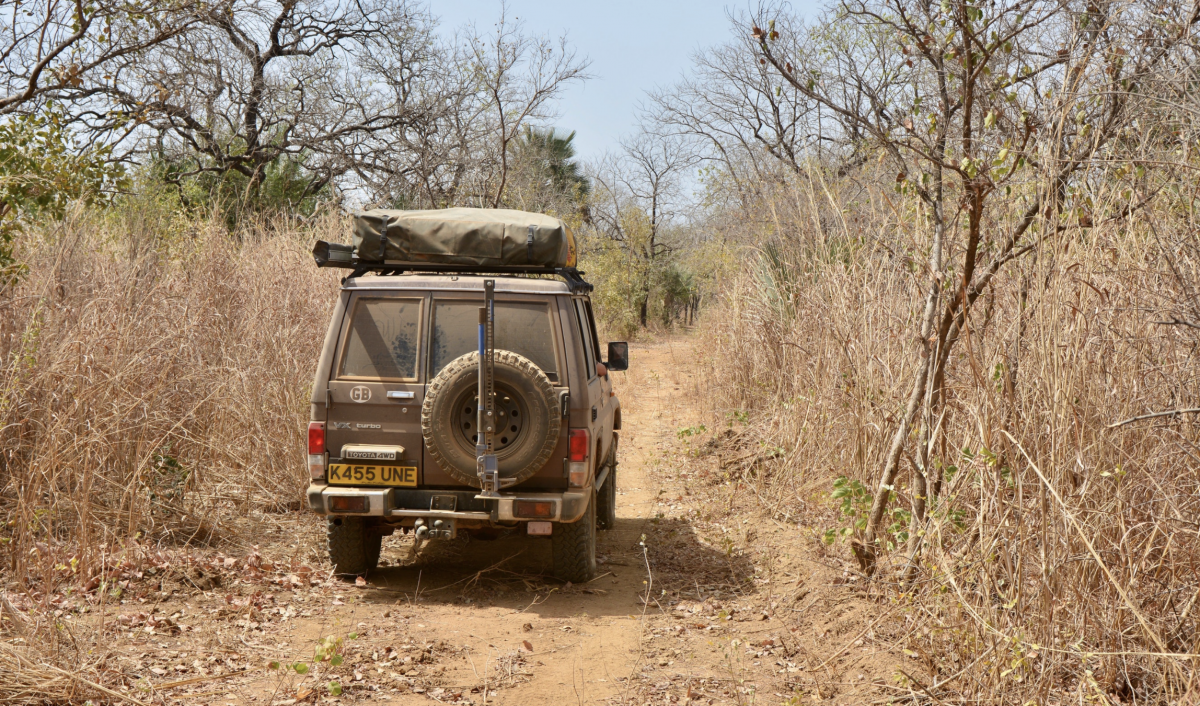
Just as the track began to improve we pulled into a clearing with a few ramshackle buildings on our left and were waved down. It became clear rather quickly that we were in fact within the National Park boundaries, we’d misread the map and blundered into a park ranger camp, although without uniforms or signs we had only their word, and the AK-47 they were waving, as proof. We were ushered into a filthy, urine tinged room buzzing with insects and waited as they radioed their chief to determine our fate. We were asked to pay the cost of entry and a guide and luckily they didn’t insist on a second vehicle trailing us to actually act as our ‘guide’. Neither of us were sure what sort of information a guide would provide, there wasn’t any animals to see and we’d have had to try hard to get lost, we followed a single track the whole day.
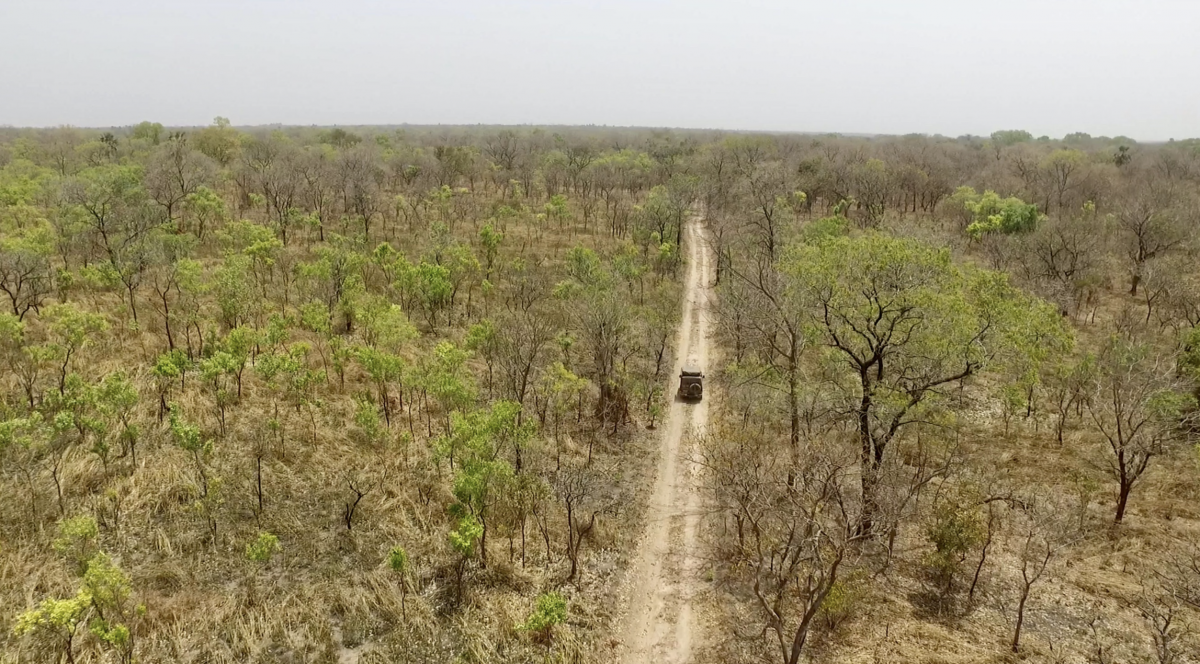
By the end of the day we’d traversed the park, passing through two more guard posts and began to look for somewhere to stay. Salemata had a couple offerings according to both our guidebook and iOverlander, a free app that anyone can use to record hotels, campsites or rough camping spots for other travellers. They suggested that Chez Gilbert was the premier address in town, a ‘most venerable campement’ according to the guidebook. It was a collection of simple thatched buildings, the central one a bar, already full early evening with local elders drinking beer. Close by, the local women were collecting water from the well, their children chasing each other and shrieking. We were shown the facilities by Mr Gilbert himself: bucket shower, bucket toilet and even one of the rooms in case we wanted upgrade from our roof tent. The mattresses were home to an ugly collection of stains, collected over decades I imagine. We reassured him we would be just fine in our tent.
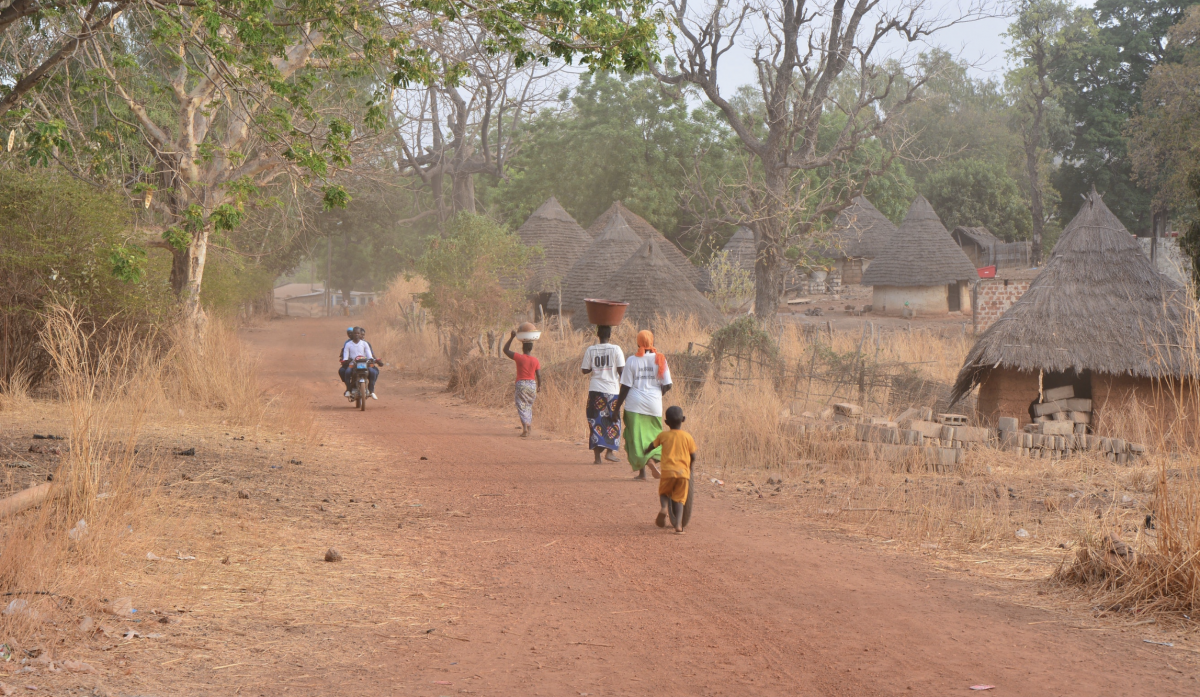
Surprisingly, ours wasn’t the only Land Cruiser at the campement, behind the bar a much newer silver model was parked. It wasn’t long before the owner came over to meet us. Jean, a bespectacled Frenchman in his seventies, hunched and bow-legged, topless in faded football shorts and filthy leather flip flops. Over the course of the evening he told us of his humanitarian exploits; building a garden here in Salemata and driving boxes of medications down from France. We were also strongly encouraged to visit his son who ran a restaurant near Lyon, leaflet and brochures dug out from his Land Cruiser and thrust into our hands. He recalled his previous trips to Africa, he had clearly travelled extensively throughout west Africa and was very keen to know our onward route and condition of the roads we had driven that day. The following morning as we were having breakfast he hitched up a trailer to his Cruiser and left, only to return a short while later as we were finished packing up, the trailer now full of wheelbarrows, for the gardens we figured. He came over to say his goodbyes and was off, another humanitarian mission in progress.
From Salemata we closed in on the Guinean border, stopping after a morning’s drive in Dindefello, our last camp in Senegal. A short walk took us to Dindefello Falls, the stream above free-falling a hundred metres into the shady, rocky, refreshing pool at our feet. A group of teenagers lit a small fire, brewed tea, giggled and gossiped after their swim as I fired up the drone. With the sheer cliffs blocking its view of the sky and satellites I had to fly by eye, the wind wafting it a little too close to the wall for comfort.
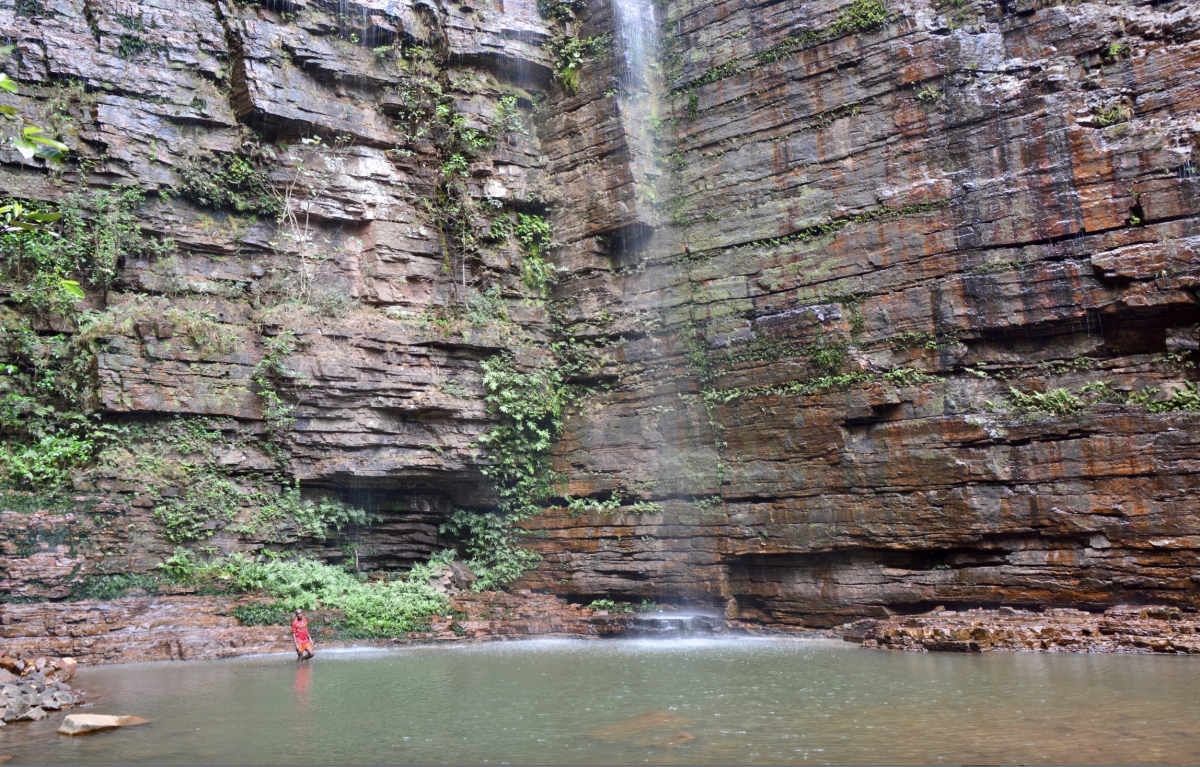
‘There are three crossings to Guinea’ writes Sean Connolly in his Brandt Senegal guidebook. Further study suggested a tarred route west of the national park via Tambacounda with the other two routes from Kedougou, only a short drive from where we were now camped. One of these routes was via Fongolimbi, a town east of us ‘known throughout Senegal for its inaccessibility.’ Cooking dinner on the stove we discussed our options as the local children played in the dusty street outside. The third border option was the closest, didn’t involve tarmac and didn’t sound painfully inaccessible, the decision was easy.
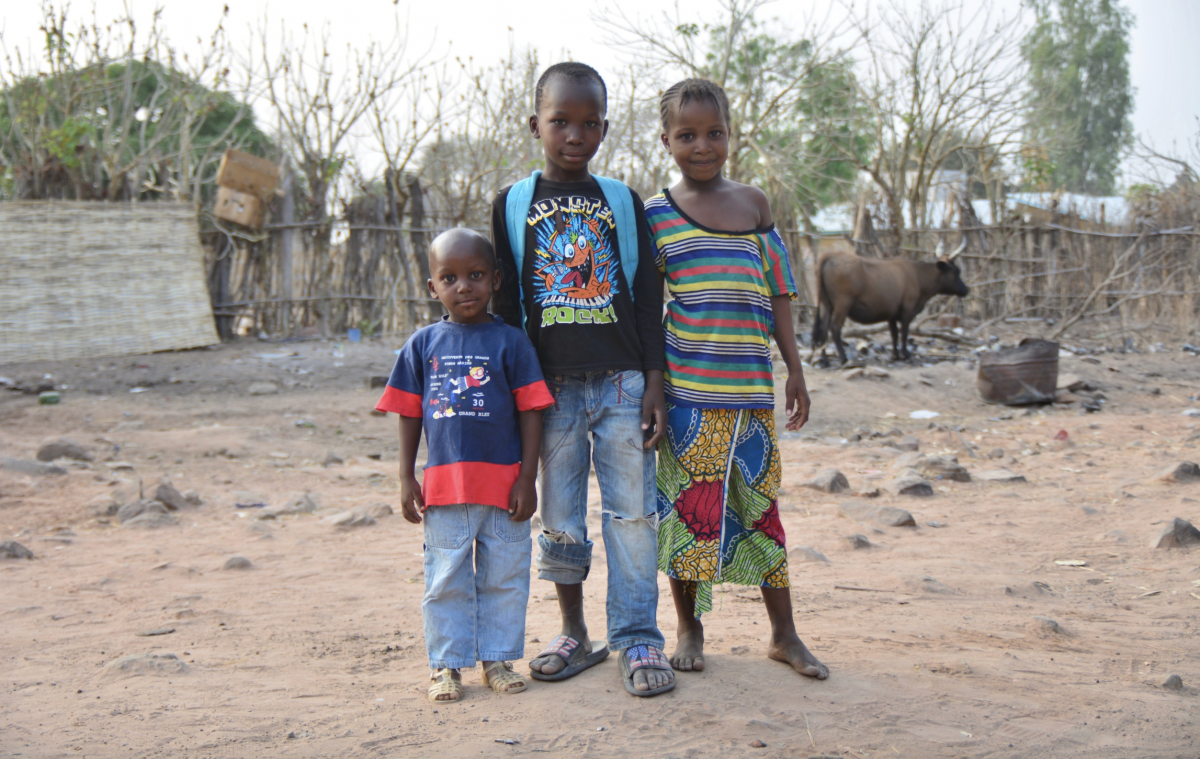
Less than thirty minutes after setting off the the following morning the road began to narrow and deteriorate at an alarming pace, vicious rocks slowing our pace to a crawl. Concerned we had taken the wrong track we stopped and asked locals which way the frontier was, everyone pointed ahead and one guy even joined us, walking comfortably alongside as we inched along. Soon the rocky excuse-for-a-road turned uphill and we began gaining height.
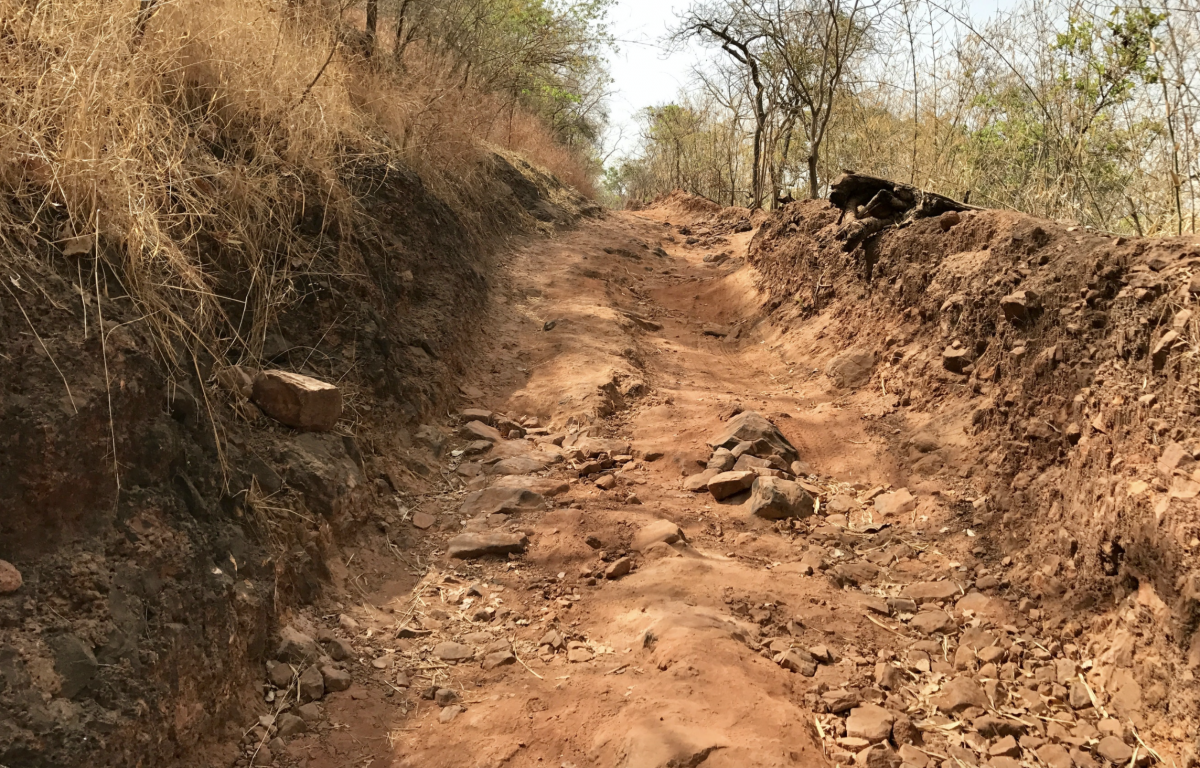
It was here, more than anywhere on the trip, that the Land Cruiser proved its worth. We never lost traction, the limited-slip differentials pushed us on even when we had a wheel airborne and the ‘underpowered’ engine that we’d been warned about never faltered. We stopped regularly to plan our route through the obstacles, shift rocks from our path or chuckle at the hilarity that this was actually a road to an international border. There really is nowhere else like Africa.
The last couple of features proved to be the most challenging, foot-high rock steps with loose rubble arranged into a ramp by previous travellers. On our first attempt these rolled away and our front right ended up jammed into the rock, our BFG tyres at risk of being unseated. On our second attempt we made it; scratched rims, a father-son photo and a morning of memories all we had to show for three hours and 200 metres of effort.
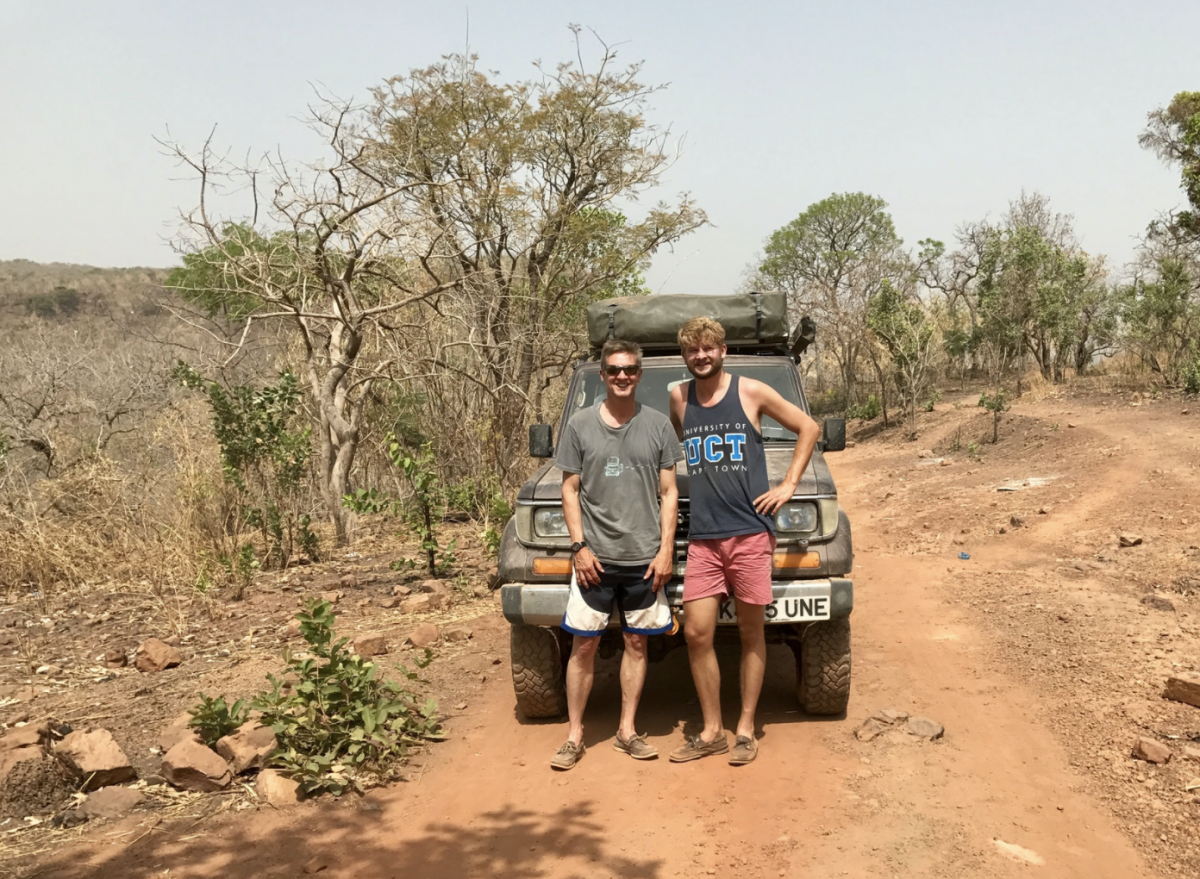
We came to the the border after another hour or so, only a piece of rope separating Senegal, aspiring, enterprising and hopeful from Guinea, recently ravaged by Ebola, unknown to tourists and famed for its terrible roads. I had been dreaming of Guinea since we set off. What would this mountainous, diverse and achingly poor country hold in store.
